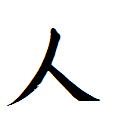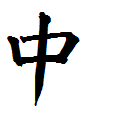Mandarin/Chinese
Homework Help & Tutoring
We offer an array of different online Mandarin/Chinese tutors, all of whom are advanced in their fields and highly qualified to instruct you.
Mandarin/Chinese
Learning the Chinese language is often cited as an example of an exceedingly difficult task. Indeed, the internal structure of the entire group of languages known under the umbrella term of the Chinese language differs drastically from the languages of Europe. Before we proceed to discussing those differences, it is important to stress that there are a number (some researchers talk about hundreds) of dialects spoken in China. They are all written down using the Chinese hieroglyphic script. Therefore, in writing they all appear to be the same. Spoken Chinese, however, varies greatly from one province to another, and even from one locality to another. The differences are so significant that it may be more appropriate to speak of them as separate languages, some of which not even mutually intelligible.
The form of Chinese taught in Western universities is usually Mandarin, the standardized version of the language based upon the Beijing dialect. This dialect is the official language of China and Taiwan as well as one of the official languages of Singapore. Another influential dialect of Chinese - Cantonese - is spoken in the wealthy southern province of Guangdong and in the cities of Hong Kong and Macau. Although Cantonese is the native language of only about 80 million people (not very many in a country of well over a billion people), its influence goes far beyond the number of speakers, because Guandong and Hong Kong are the engine of the Chinese economic progress, and are much wealthier than the rest of China.
One of the unique characteristics of the Chinese language that a Westerner needs to understand is its tonal structure. The meaning of a word (or a phrase) depends not only upon the correct pronunciation of sounds, but also on the correct musical tone according to which we pronounce those sounds. A rising, falling, neutral, or rising-falling tone may change the meaning radically. Hence, a person with a musical ear has a better chance to excel in Chinese than someone who cannot carry a tune.
Chinese script, commonly known as “hieroglyphs”, is another stumbling block on the way to learning the language. Unlike alphabetic writing systems (such as Latin, Cyrillic, Arabic, Greek or Hebrew), the Chinese characters often signify a word or a syllable each. The most comprehensive dictionaries of Chinese list over 100,000 characters. Nevertheless, in real life, knowledge of a few thousand hieroglyphs is sufficient. The Chinese writing system can be traced back to pictograms, or simplified pictures. Some characters still bear some resemblance to what they signify.
For example, the first of the characters below, ren, means “person,” while the second one, zhong, signifies “middle:”


The simple characters below signify “one” and “two” respectively.


Unfortunately, only a small number of characters are that simple and easy to decipher. Most will require much more effort and memory. If you are interested, try this interactive website. Learning Chinese certainly represents a challenge, but proficiency in that language has its rewards. Chinese is spoken by over a billion people, and it is the official language of a country that is slowly but surely becoming the top economy in the world. Knowledge of Chinese opens significant opportunities in the sphere of international trade. It also provides a unique opportunity to experience and appreciate the immensely rich culture of China. Whatever your reason, we at 24HourAnswers are committed to providing you with all the assistance you require.
To fulfill our tutoring mission of online education, our college homework help and online tutoring centers are standing by 24/7, ready to assist college students who need homework help with all aspects of Mandarin/Chinese. Our languages tutors can help with all your projects, large or small, and we challenge you to find better online Mandarin/Chinese tutoring anywhere.
College Mandarin/Chinese Homework Help
Since we have tutors in all Mandarin/Chinese related topics, we can provide a range of different services. Our online Mandarin/Chinese tutors will:
- Provide specific insight for homework assignments.
- Review broad conceptual ideas and chapters.
- Simplify complex topics into digestible pieces of information.
- Answer any Mandarin/Chinese related questions.
- Tailor instruction to fit your style of learning.
With these capabilities, our college Mandarin/Chinese tutors will give you the tools you need to gain a comprehensive knowledge of Mandarin/Chinese you can use in future courses.
24HourAnswers Online Mandarin/Chinese Tutors
Our tutors are just as dedicated to your success in class as you are, so they are available around the clock to assist you with questions, homework, exam preparation and any Mandarin/Chinese related assignments you need extra help completing.
In addition to gaining access to highly qualified tutors, you'll also strengthen your confidence level in the classroom when you work with us. This newfound confidence will allow you to apply your Mandarin/Chinese knowledge in future courses and keep your education progressing smoothly.
Because our college Mandarin/Chinese tutors are fully remote, seeking their help is easy. Rather than spend valuable time trying to find a local Mandarin/Chinese tutor you can trust, just call on our tutors whenever you need them without any conflicting schedules getting in the way.

